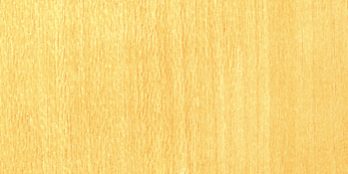Kembang Semangkok: Versatile Timber for Quality Woodwork
**Introduction**
Kembang Semangkok is the Standard Malaysian Name for the wood derived from the Scaphium species (Sterculiaceae family). Known as SAMRONG in the ASEAN standard (originating from Thailand) and KAPAS-KAPASAN in Indonesia, this wood is recognized for its versatility and distinctive appearance. In Peninsular Malaysia, Sabah, and Sarawak, it is commonly referred to by various local names. The primary species include Scaphium linearicarpum, S. longiflorum, S. macropodum, and S. scaphigerum. The sapwood is lighter than the heartwood, which is yellow-brown, light buff, or light brown.
Internationally, it is also known as Kembang Semangkok (Brunei), Kapas-kapasan and Merpayang (Indonesia), Shaw taung-thinbow (Myanmar), and Phungthalai and Samrong (Thailand).
**Density**
This wood is categorized as Light Hardwood in Malaysia, with a density ranging from 515 to 755 kg/m³ when air-dried. It is generally soft to moderately soft and light to moderately heavy.
**Natural Durability**
Kembang Semangkok wood is moderately durable under exposed conditions. However, its sapwood is susceptible to blue stain fungal infections and powder-post beetle attacks.
**Preservative Treatment**
The wood is highly receptive to preservative treatments, making it very easy to treat.
**Texture**
The texture of Kembang Semangkok is slightly coarse and uneven due to its broad rays and wide layers of parenchyma. The grain is straight or shallowly interlocked.
**Strength Properties**
This wood falls into Strength Group C (Burgess, 1958) or SG 3 (MS 544: Part 2: 2001).
**Strength Properties of Kembang Semangkok (S. macropodum)**
| Test Condition | Modulus of Elasticity (MPa) | Modulus of Rupture (MPa) | Compression Parallel to Grain (MPa) | Compression Perpendicular to Grain (MPa) | Shear Strength (MPa) |
|—————-|—————————–|—————————|————————————-|——————————————|———————–|
| Green | 15,500 | 76 | 37.2 | – | 8.6 |
| Air dry | 17,000 | 92 | 50.2 | – | 10.1 |
**Machining Properties**
Kembang Semangkok is generally easy to resaw and cross-cut, although earlier it was reputed as difficult to process. Planing is easy, resulting in a smooth surface, though occasionally some grain pick-up occurs in radially sawn material. Due to its siliceous nature, the timber may cause rapid blunting of saw teeth and heating of the saw during processing. Therefore, it is advisable to process the timber in its green state, which makes it easier to work. Using saw teeth tipped with carborundum steel can also improve machining properties. The log can be easily peeled to various thicknesses without pretreatment.
**Machining Properties of Kembang Semangkok (S. macropodum)**
| Test Condition | Sawing | Planing | Boring | Turning | Re-sawing | Cross Cutting | Ease of Planing | Quality of Finish | Ease of Boring | Quality of Finish | Ease of Turning | Quality of Finish |
|—————-|——–|———|——–|———|———–|—————|—————–|——————-|—————-|——————-|—————-|——————-|
| Green | Easy | Easy | Easy | Smooth, slight grain pick-up on radial face | Easy | Smooth | – | – | – | – | – | – |
| Air dry | Easy | Easy | Easy | Smooth | Easy | Slightly rough | Easy | Slightly rough | Easy | Slightly rough | Easy | Slightly rough |
**Nailing Property**
The nailing property of Kembang Semangkok wood is rated as good.
**Air Drying**
The timber seasons fairly rapidly with minimal degrade, though it is prone to staining, slight end-checking, and splitting. Thirteen mm thick boards take approximately 2 months to air dry, while 38 mm thick boards take around 3 months.
**Kiln-Drying**
Kiln Schedule H is recommended for Kembang Semangkok wood. The timber kiln-dries well without seasoning degrade but is prone to mould and blue-stain attacks. Twenty-five mm thick boards take approximately 5 days to kiln-dry from 50% to 10% moisture content.
**Kiln Schedule H**
| Moisture Content (%) | Temperature (Dry Bulb) | Temperature (Wet Bulb) | Relative Humidity (%) (approx.) |
|———————-|————————|————————|——————————–|
| Green | 135 °F (57.0 °C) | 127 °F (53 °C) | 80 |
| 50 | 135 °F (57.0 °C) | 126 °F (52 °C) | 75 |
| 40 | 140 °F (60.0 °C) | 126 °F (52 °C) | 65 |
| 30 | 150 °F (65.5 °C) | 129 °F (54 °C) | 55 |
| 20 | 170 °F (76.5 °C) | 136 °F (58 °C) | 40 |
**Shrinkage**
Kembang Semangkok wood exhibits fairly high shrinkage, with radial shrinkage averaging 1.2% and tangential shrinkage averaging 3%.
**Movement in Service**
The movement of seasoned timber is classified under Type II.
**Uses**
The timber’s broad rays and terminal bands of parenchyma create an attractive figure, making it ideal for interior finishing, panelling, mouldings, cabinet making, joinery, furniture, plywood, and staircases (apron lining, handrails, and sprandrel framing). It is also suitable for posts, beams, joists, rafters, pallets (expendable and permanent light duty), and cooling tower non-structural members. In Thailand, it has been successfully used in the manufacture of match splints.
Kembang Semangkok wood is a versatile choice for both aesthetic and structural applications. Discover its potential for your projects at Creatimber, where quality and reliability meet elegance and functionality.






